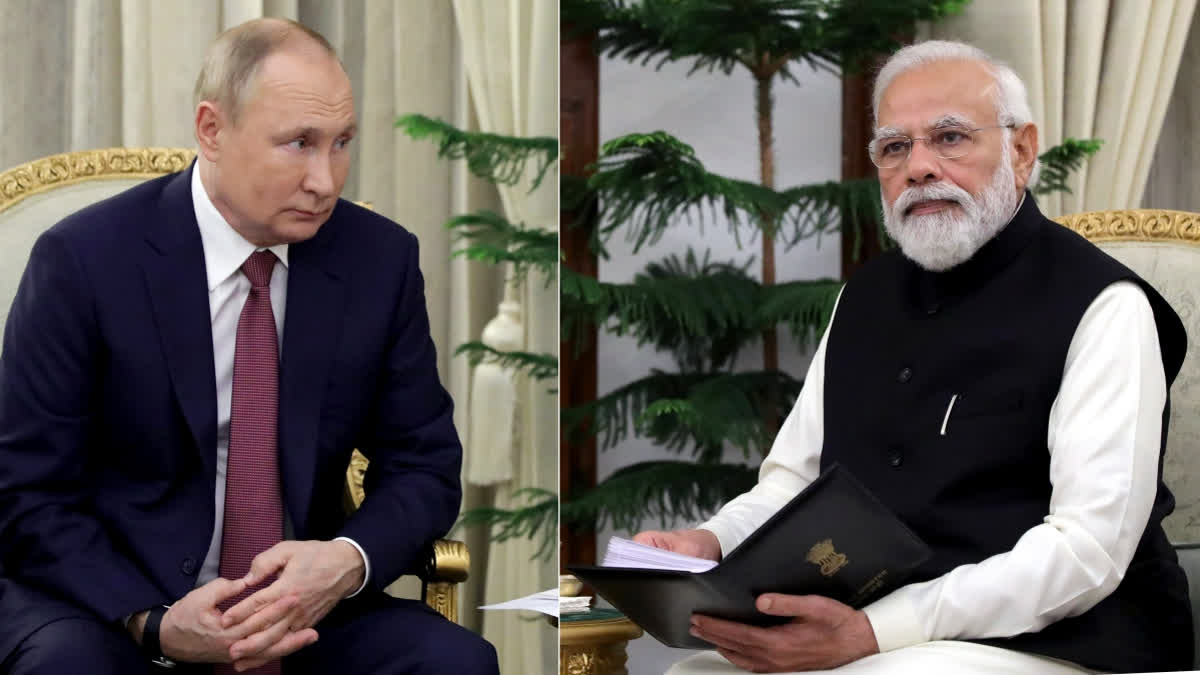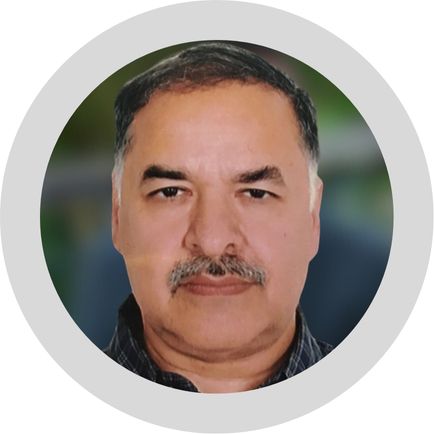After a gap of five years, Russian President Vladimir Putin and Indian Prime Minister, Narendra Modi, will resume their bilateral meetings that began in the year 2000. This bilateral summit, which will take place on July 8-9,2024, comes at a time when the US-led West has been trying to show Moscow as a pariah state due to its invasion of Ukraine on February 24, 2023.
To its credit, India has continued to do business with Russia and during Modi’s July visit to Russia, not just economic issues including oil import, which has been galloping ever since the war broke out in Europe, but also strategic issues that may have bearing on global politics.
Ideally, Prime Minister Modi, who got re-elected for the third time though with a reduced strength in the parliamentary, should have gone to Astana, Kazakhstan, for the Shanghai Cooperation Summit (SCO), but visibly the PM did not want to intersect with Chinese President Xi Jinping till some issues were sorted out.
India has not been issuing visas to Chinese nationals, but that does not mean that they are not doing business. The trade between the two countries is around 118 billion dollars but they are also staring down at each other's forces around Galwan and other flash points along the Line of Control.
In fact there has been no easing of tensions after the messy face-off in June 2020 at Galwan when we lost 20 odd soldiers. Russian President Putin leveraged his relationship with his Chinese counterpart, Xi Jinping, to ensure that the relationship between his two key allies did not spin out of control. Despite President Putin’s attempts, ties between India and China have not normalised. There is a view that the US is keen that India maintain its military build-up against the Chinese forces to discourage Beijing from any adventurism against Taiwan. This works well even to make China see reason.
While China is a major issue that will set the contours of the PM's visit to Russia, there are other contentious matters that are weighing on the two countries. For one United States' attitude towards India's close relationship with Russia. It was a general belief that US sanctions against Russia would deter India into buying oil from this country.
Before the Ukraine invasion, India did not buy much of oil from Russia as it was considered unsuitable for its refineries, but with time it has become a top supplier to India. Russian unrefined crude was 40 per cent of all imported crude to India. In real terms, it bought 1.96 million barrels per day - much more than what we purchase from Saudi Arabia.
Indian Petroleum Minister Hardeep Singh Puri had eloquently stated that India was never pressured to give up buying Russian oil. He may be right, as the West could ill afford a life without Russian oil. What happened was that the bulk of the refined Russian crude - was redirected to European countries and even the US. If there was no Russian crude available through the Indian route, then there would have been a calamity with the price of fuel raging and bringing the world economy to a halt. By adopting this device, the world economy did fine. India, too, did well.
As a bulk of the Russian oil was purchased in Indian Rupees, Moscow is sitting on a pile of Rupees that needs to be spent. This will be a subject matter of a major discussion between PM Modi and President Putin. In the past, Russian company Rosneft had bought Essar refinery in India from Indian Rupees. That way, more projects including the production of Vande Bharat trains will go to Russia in the coming months.
Russia had invested considerably in building the International North-South Transport Corridor (INSTC). This corridor is a far shorter route than taking cargo through the Suez Canal. Trial runs that go through Iran have shown that the multi-modal transport corridor works well. It requires some gaps that need to be filled for a glitch-free journey from St. Petersburg to Iran's Abbas port and then to Mundra in Gujarat, India. For the first time, coal is shipped from Russian mines to India, by train.
Another connectivity project that is challenging INSTC is IMEEC. In fact this project again makes an attempt of Europe to take India in its embrace. This corridor is supposed to go through the Middle East, Israel Greece and beyond. Again this corridor takes less time than the Suez Canal and also sidesteps the troublesome waters of the Red Sea, where ships are being tormented by Houthis - who belong to the arc of resistance against Israel. India is happily placed on both counts.
However, the two wars in Russia and the Middle East are posing new challenges for Indian foreign policy. Prime Minister Modi is likely to take up the issue of Indians fighting the war against Ukrainians. This is a sensitive issue and the Indian government has raised it many times, but there is little clarity on whether Moscow, strapped for manpower as it is, would not want them to go away. It would be interesting to know how the PM conveys India’s concerns about Indians fighting for a friendly country like Russia. According to Russian sources, there is an unceasing demand for jobs from India and many are not averse to joining the Army as the salary that is offered is high and there is also an offer of residency for those who serve in the Army.
By all reckoning, this would be a very interesting trip for PM Modi that will decide many compelling issues including the contentious de-dollarisation, which is likely to gather substance when the members of the expanded BRICS countries meet in October 2024. The Indian PM is likely to take part in this summit. India has been reluctant to enforce de-dollarisation, which is pushed aggressively by Russia and China in order to bypass US-sponsored sanctions.
(Disclaimer: The opinions expressed in this article are those of the writer. The facts and opinions expressed here do not reflect the views of ETV Bharat.)



